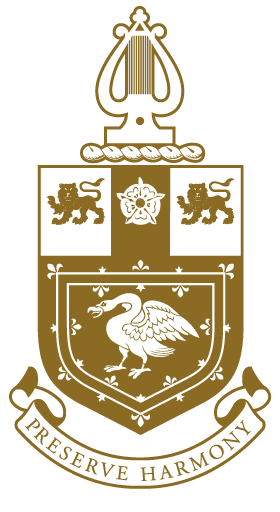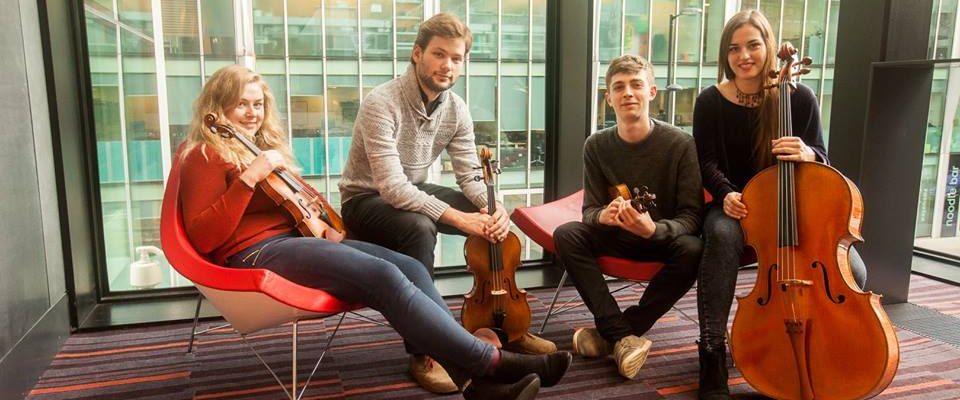Young Artist Interview: Meet the Harriet Cohen Bach Prize Winner Mihaly Berecz
Pianist Mihaly Berecz holds the Musicians’ Company’s 2018 Harriet Cohen Bach Prize. Mihaly’s other prestigious award wins include the Debut Berlin International Concerto Competition, following which he made his Berlin Philarmonie debut. A Beethoven enthusiast with a strong interest in historically informed performance, Mihaly’s repertoire ranges from Bach to contemporary composers. He combines his studies at London’s RAM with concert performances across Europe, including his hometown of Budapest.
How are you, and where are you currently?
I am back to Budapest for the holidays enjoying time with my family. Especially with my two baby nieces; they are already so musical. I’ve done some paddling and swimming – and of course practising! I have to prepare a few concerts and then finally can learn some fresh repertoire. We musicians plan well ahead, so I’ve started preparing my final recital programme too, which is going to be next summer.
What’s on your schedule right now?
I have a few, very exciting concerts coming up this summer. One of my favourite violinists, Kristóf Baráti (who just played in the opening concert of the Verbier Festival) invited me to Kaposvár Chamber Music Festival, where I’m going to play Beethoven sonatas with Kristóf, as well as some four-hand music with Julien Quentin. Kristóf and I have a mutual love for aviation – he even holds a pilot licence and took me for a flight recently.
I’m also looking forward to performing soon at the Esterházy Palace, where Haydn lived and worked for nearly 30 years. I’ll spend a week there rehearsing and performing Mozart’s Piano Concerto K449 and Haydn’s Piano Concerto in D major with the Orfeo Orchestra and maestro György Vashegyi. I’ll play a wonderful copy of a Walter fortepiano (the same kind Mozart used), built by Paul McNaulty. It should be a very special and atmospheric occasion.
What excites you about historically informed performance?
A historically informed performance doesn’t necessarily need to be played on period instruments. It is about understanding the composer’s notation and markings in a historical context. However, there is nothing more exciting than playing an instrument similar to the ones Haydn, Schubert or Chopin used. We know that Beethoven had an extremely wide range of dynamics in his piano playing. On modern pianos – especially Steinways with their big, powerful sound – one always must be careful with volume, touch, pedal etc. When I get to play a Beethoven concerto on a fortepiano I finally have the power to play as soft or as loud as I want!
Tell us a bit about your favourite repertoire
My ‘holy trinity’ is Bach, Beethoven and Bartók, the ‘Three B-s’! Bartók’s piano music in Zoltán Kocsis’s performance made me fall in love with my instrument. Not surprising then, that his music is still the core of my favourite repertoire. I’m looking forward to performing his complete piano music (almost 9 hours) in 2020-2022, which is probably going to be my biggest project ever.
We pianists can’t live without the keyboard music of J. S. Bach – it is like spring water or fresh air. I’ve always got some Bach on my repertoire because of his wisdom, faith, wit and humour.
What are the best and worst things about being a pianist?
No other instrument has such wide and beautiful repertoire as the piano. That’s the reason I chose the piano, as we get to play the most important European classical music works (the last Beethoven sonatas for example). However, being a pianist means hours and hours of spending time just the two of us – the piano and I. Pianists are lonely wolves, unlike string players or singers, who get to play in orchestras or sing in choirs. Fortunately, the rich chamber music literature for piano makes up for it slightly.
What’s your view on the classical music scene at present?
Being surrounded by highly talented and enthusiastic musicians at the Academy and having seen some of the most distinguished performers at the best concert halls reassures me that there’s no need to worry about future musicians. On the other hand, I often think of Zoltán Kodály, whose mission was educating the audience. What audience would the next generation make if there’s not enough singing at schools and only a few children pick up musical instruments? Fortunately, there are amazing people, like Sir Simon Rattle, who has done, and will do everything to make children love music.
What are you most looking forward to this year?
I can’t wait to perform in Mumbai this October with the Concerto Budapest and maestro András Keller. It is a dream come true, as Indian culture has always been very special to me. Fantastic food, wonderful people… I’m very much looking forward to it!
You can find out more about Mihaly at www.mihalyberecz.com
Interview by @suzywillmott





